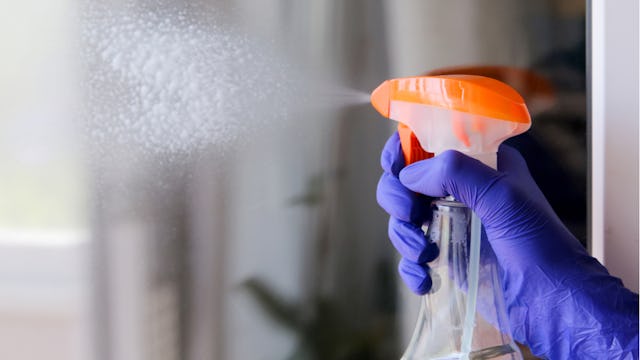People Don't Understand That 'Neat Freaks' Can't Function With Clutter

We know: It annoys you, our compulsion to have everything tidy and just-so. You may have found it endearing at first. But after an extended period of being nagged about your sloppy habits or waiting on us to get this one last thing cleaned up before we leave the house or come to bed, this is probably one of our “quirks” you could happily do without.
Only here’s the thing: It’s not just a quirk. To us, it’s a need, nearly as critical as the air we breathe.
When our surroundings are cluttered and messy, so are our minds. Physical clutter is reflected within our valuable headspace as stuff we can’t get past: a literal blockage, a disruption of our trains of thought. Like a hoarder can’t move throughout their house, we can’t think clearly or concentrate properly in the presence of disorder. It bothers us to the point of single-minded distraction, the way a rock in a shoe bothers people.
When we can’t concentrate, we can’t function at our regular capacity. And when we can’t function at our regular capacity, we feel frustrated and resentful and anxious. And when we feel frustrated and resentful, that can outwardly translate into grumpiness or withdrawal or sadness or self-loathing or any number of crappy manifestations. The truth is, many of us are perfectionists in multiple areas of our lives, and our surroundings are often the easiest thing to control — which is why it’s so important. Because when even the easiest to control aspect is, well, uncontrolled, it can make us feel like everything else is spiraling out of our grasp as well.
As dramatic as it sounds, failing to keep up with clutter can feel as though we’re failing in general. At life. That is not a good feeling.
You’re probably reading this because you love a neat freak. If there were a simple, painless act you could do every day to let us know that, and to relieve a substantial portion of our stress at no cost to yourself, you’d do it — yes? Well, there is. It’s called picking up after yourself, and it will help us on more levels than you can fathom.
When you do it, we both win. It only takes a couple of seconds to put your dirty dishes where they belong, toss your crusty socks in the hamper, slide your book back onto the shelf when you’re done reading it, wipe the toilet seat if you sprinkle. We have a hard time grasping why it seems like this is so much to ask of our families and housemates, especially when it’s an issue of such importance to us. We get that breaking old habits takes time, but if you can understand how critical it is to our overall well-being, and how it isn’t just an annoying trait, maybe it would help.
It goes beyond “I like my house neat.” It’s more like, “If my house isn’t neat, I feel terrible.”
You may never be able to comprehend our need for order and tidiness, just as we will never share your ability to look past a pile of junk like it’s just part of the landscape. And we’re not expecting you to ever care about it as much as we do. But if you’re concerned at all about our mental health (which directly affects the entire household, so we hope you care), you’ll take a few extra minutes per day to help stay on top of the mess. And we won’t feel the compulsion to nag about it as much, which is a benefit for everyone — us included — because trust: We don’t like doing it just as much as you don’t like hearing it.
Mess less, stress less. Take those four little words to heart, for the sake of the neatnik you adore, and our cohabitation will go much more smoothly. For all of us.
This article was originally published on